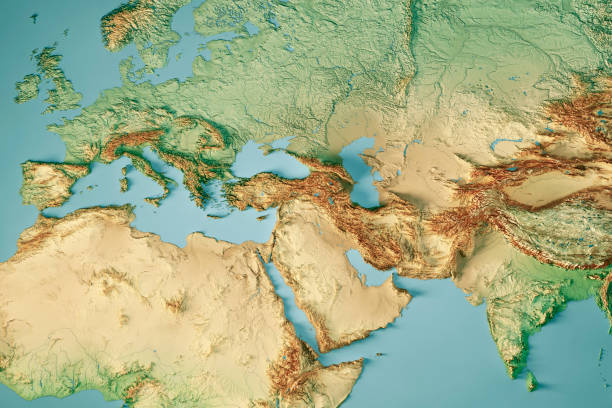Joyce Banda, the former President of Malawi, emphasized the pivotal role of women in nation-building, stating, “Women must lead the charge in bringing about the necessary change for sustainable peace and development.” Her words underscore the transformative potential of women in shaping the trajectory of nations. In a historic development, the Democratic Republic of Congo (DRC) recently appointed Judith Suminwa Tuluka as its inaugural female Prime Minister.
This milestone marks a significant stride towards gender parity in the Central African nation’s leadership landscape. To understand the potential impact of this change, let’s delve deeper into Tuluka’s background, qualifications, the challenges she faces, and the opportunities her leadership presents for the DRC’s progress.
Born in 1967, Tuluka is not a newcomer to the political scene. With over two decades of experience, she possesses a strong track record in public service, particularly focused on development. Before assuming the mantle of Prime Minister, she served as the Minister of Planning in the previous government under Prime Minister Sama Lukonde, the role which equipped her with an in-depth understanding of the DRC’s economic landscape and its most pressing development needs.
However, Tuluka’s experience extends beyond the national level. She holds a Master’s degree in Applied Economics from the prestigious Université libre de Bruxelles in Belgium. This academic foundation, coupled with her prior experience in the banking sector, solidified her economic expertise. Notably, her additional qualification – a diploma in Human Resource Management in Developing Countries with a specialization in Labor Sciences – underscores her commitment to human capital development, a crucial factor for the DRC’s progress.
The DRC has grappled with internal conflicts and regional instability for decades. Recognizing this, it’s important to note that Tuluka’s experience transcends the purely economic realm. Her involvement in peace consolidation and security governance, both domestically and internationally has been recognized and celebrated.
Despite her impressive qualifications, Tuluka’s premiership might face significant challenges ranging from poverty, corruption, and a fragile security situation are which are deeply entrenched issues in the DRC. Decades of conflict have ravaged the country’s infrastructure and hampered economic growth. Additionally, ethnic tensions and rebel activity continue to pose threats to stability.
However, amidst these challenges, we believe Tuluka’s appointment will present significant opportunities. Her economic expertise can be crucial in tackling poverty and managing the vast natural resources of the DRC. Her focus on human capital development can empower the Congolese people and unlock the country’s full potential. Furthermore, her experience in peacebuilding can be instrumental in fostering national unity and reconciliation.
International Relations and Fostering Regional Cooperation
The DRC plays a critical role in the African continent. Tuluka’s leadership can significantly shape the country’s foreign policy and regional partnerships. Sharing borders with nine countries, and fostering peaceful and cooperative relations with its neighbors will be essential for both regional stability and economic development. Additionally, Tuluka can leverage the DRC’s immense mineral wealth to negotiate favorable trade deals with international partners, ensuring that the country benefits from its resources.
Building Trust: Public Perception and Communication
The success of Tuluka’s premiership will depend heavily on her ability to connect with the Congolese people. She must address their concerns about corruption, poverty, and security transparently and effectively. Open communication, transparency, and a focus on delivering tangible improvements in people’s lives will be critical in building public trust.
A Symbol of Change and a Catalyst for Progress
Judith Suminwa Tuluka’s premiership is more than just a political appointment. It represents a powerful symbol of change for a nation yearning for stability and prosperity. As the first woman to hold the office of Prime Minister, she inspires a generation of Congolese women to pursue leadership roles and challenge traditional norms. Her leadership has the potential to usher in an era of progress for the Democratic Republic of Congo, not just economically, but also socially and politically. The international community stands ready to support her in this historic endeavor.
Potential Policies and Strategies
Moving forward, we believe that Tuluka’s focus should include economic development, poverty reduction, corruption, security, conflict resolution, gender equality, and women’s empowerment. She could implement policies to attract foreign investment and stimulate domestic entrepreneurship, diversify the economy, invest in infrastructure, and develop social safety net programs. She could also improve access to education, healthcare, and job creation. Additionally, she could strengthen institutions responsible for corruption and promote dialogue between different ethnic groups. Finally, she could promote women’s participation in government and address gender-based violence.
The Democratic Republic of Congo faces a complex and challenging path forward. However, with a dedicated leader like Judith Suminwa Tuluka at the helm, there is renewed hope for a brighter future. Her experience, expertise, and commitment to development can be the catalyst for progress the nation desperately needs. The world watches with anticipation as Tuluka embarks on this historic journey, leading the DRC towards a more peaceful, prosperous, and equitable future.


